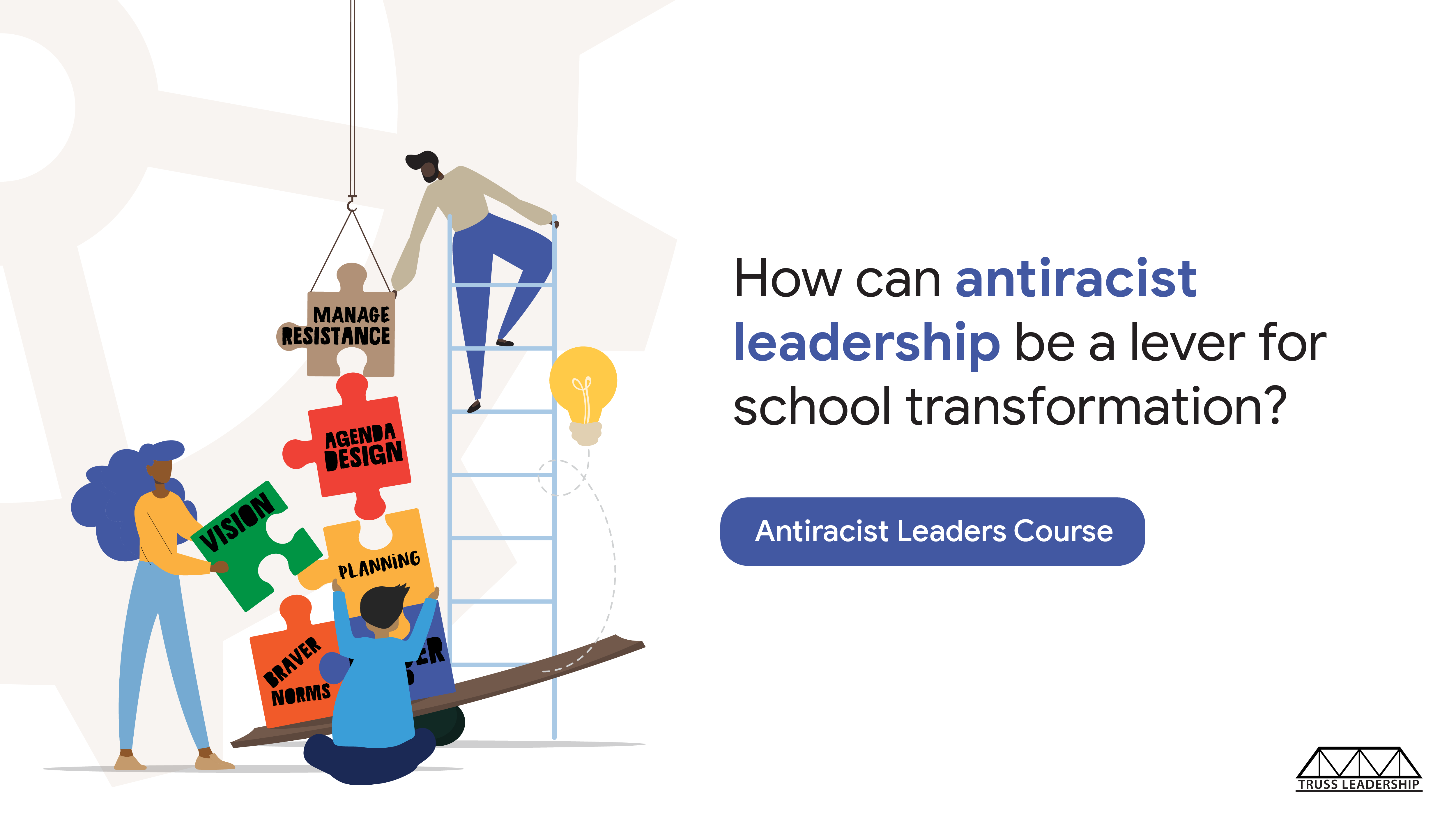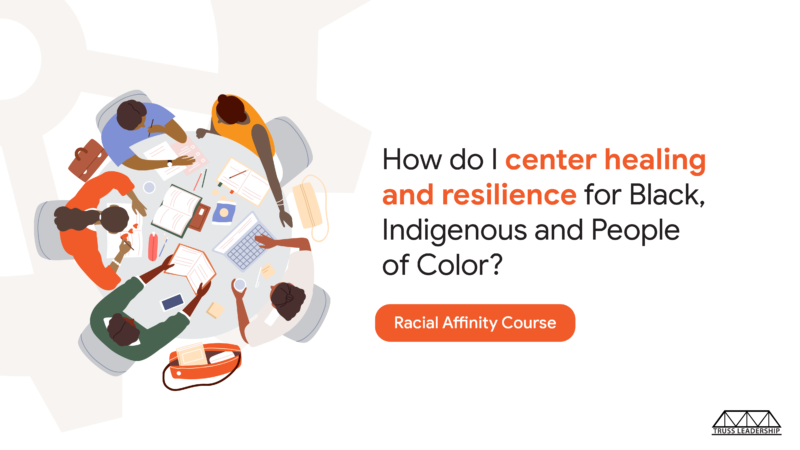Year-Long Courses
Truss Leadership offers several courses
for educators working to put racial equity into action.
Who says that learning should end when you finish your degree? Not us. At Truss Leadership, we are strong believers in educators being treated as professional, and that includes learning. But not just any old PowerPoint, ‘sit and get’ learning.
Educators, just like our students, deserve engaging, powerful, and culturally responsive learning. If we are going to work towards racial justice and equitable outcomes for our students we need to cultivate the right space for our educators.
Here from our participants in the following video: Learning with Truss Leadership (5 year-long courses)
Explore antiracist practices.
We offer courses on Antiracist Leadership and Antiracist Teaching. Going beyond a one-off training, these learning communities provide opportunities for teachers, leaders, and central office staff to explore antiracist practices. In all courses, participants begin by reflecting on their practices using tools and rubrics. We offer learning for racial equity teams and for facilitators of racial affinity spaces. Truss Leadership courses review relevant research and engage educators in discussion and cycles of inquiry.
We want you to feel seen, be included, and be pushed.
If your stomach ain’t churning, you ain’t learning. We want our courses to build deep communities, sometimes across states and borders. We want to then build on that community with vulnerable sharing and collaborative action planning.
All our courses evolve throughout the year and culminate in a public exhibition of learning. At our end of year symposiums, educators share their big takeaways, reflections, and goals for the following year. Many of our participants take other courses after completion.
Antiracist Teaching
Topics:
- Restorative Practices, Trauma Sensitivity, and Liberating Black Bodies
- Culturally Relevant and Revolutionary Project Based Learning
- Culturally Responsive Teaching is more than just diverse texts
- Black History Month, Ethnic Studies, and Decolonizing Curricula
Organizing for School Transformation
1:1 Leadership Coaching
Meets monthly for 60 minutes
1 on 1 conversations to consult, check progress, and strategize
Purpose:
- Leading system-wide racial equity development
- We will work together to select goals for the year, matching my expertise with your needs.
Antiracist Leadership
Meets for 10 months; 2nd Thursday of each month
Topics:
- Unpacking, creating, and checking “braver” norms
- Writing, stating, and revisiting equity imperatives
- Multiyear-long term planning for racial equity
- Agenda design, resistance, and antiracist audibles in meetings
- Team development and leadership skill development
Racial Affinity Groups
Outcomes:
- Use a research-based framework and other equity-based resources to understand and discuss how racial identity development influences our beliefs and behaviors as educators.
- Actively participate in a supportive space for healing, reflection, learning, and personal connections.
- Experience how racial affinity groups serve as an essential strategy for working toward antiracism in our schools.
Racial Equity Leadership Team Institute
Topics:
- Creating a common purpose and articulating your team why
- Unpacking, creating, and checking “braver” norms
- Assessing the needs of your school or organization
- Analyzing data that matters to racial equity work
- Multiyear-long term planning for racial equity
- Leveraging marginalized student/family voices
- Agenda design, resistance, and antiracist audibles in meetings






